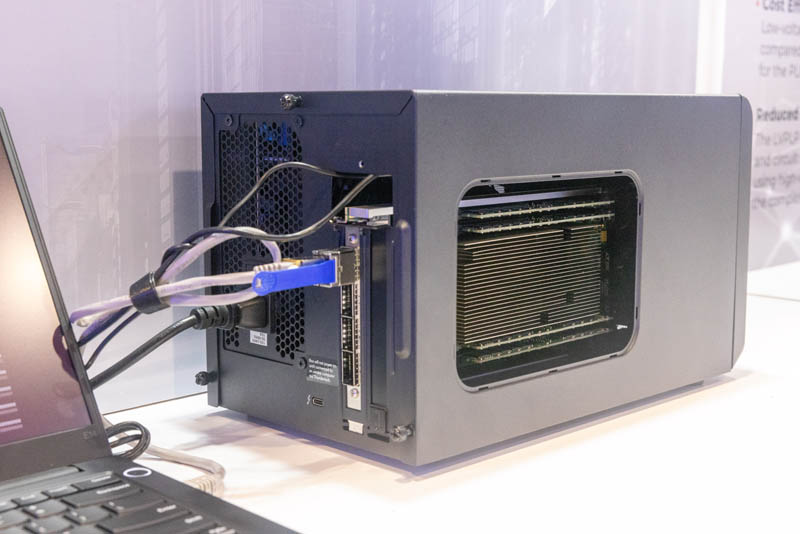Even a laptop can run RAM externally thanks to a little-known tech called CXL — but it’s not for sale to mere mortals who only want 1TB of RAM
FADU’s CXL 2.0 switch concept augments next-generation data centers with more RAM for AI use cases

A start-up has sampled a new device designed to augment servers with additional memory over a CXL 2.0 connection simply by plugging it into a laptop.
FADU, which is known to manufacture SSDs and other storage units, demonstrated its CXL 2.0 switch concept device at Flash Memory Summit (FMS) 2023, according to Serve the Home. This was a field programmable gate array (FPGA) switch, the firm said, and it’s designed to augment IT infrastructure with a monumental amount of memory to support next-gen workloads such as AI.
A similar unit also on display at FMS 2023, the XConn XC50256 CXL 2.0 switch chip has 32 ports that can be split into 256 lanes, supporting up to 2TB/s of bandwidth, according to Electronic Design.
What’s new in CXL 2.0?
Operating over PCIe, CXL 2.0 is an interface between the best CPUs, memory units, accelerators, and other components. It’s the latest standard in the CXL technology.
The previous edition, CXL 1.1, focused on augmenting systems with memory rather than relying on RAM to be traditionally fitted into the computer. Instead of fitting RAM units, systems would get a memory boost by directly attaching it to the CPU or GPU, or another component with a PCIe slot.
This is useful for hyperscalers and big data center operators, in particular, because it means you can account for when there’ll be a surge in memory usage during particularly intensive workloads.
The CXL 2.0 switch, known as Apollo, supports both CXL 2.0 and PCIe Gen 5 standards in a single chip, and it’s designed to reduce latency and power consumption when in use. You also don’t need two separate chips for CXL and PCIe.
Are you a pro? Subscribe to our newsletter
Sign up to the TechRadar Pro newsletter to get all the top news, opinion, features and guidance your business needs to succeed!
What’s more, processors and accelerators can pool memory in a single space, which negates the limited capacity in data centers caused by tight coupling between CPUs and RAM units.
More and more devices are emerging on the market to boost data center performance in the generative AI age, with FADU’s concept following the Xconn unit also launched at FMS.
More from TechRadar Pro
- This is the best RAM you can get for your PC
- We've rounded up the best DDR5 RAM
- The world’s fastest SSD has just been tested and it packs an unbelievable smart cooling system

Keumars Afifi-Sabet is the Technology Editor for Live Science. He has written for a variety of publications including ITPro, The Week Digital and ComputerActive. He has worked as a technology journalist for more than five years, having previously held the role of features editor with ITPro. In his previous role, he oversaw the commissioning and publishing of long form in areas including AI, cyber security, cloud computing and digital transformation.